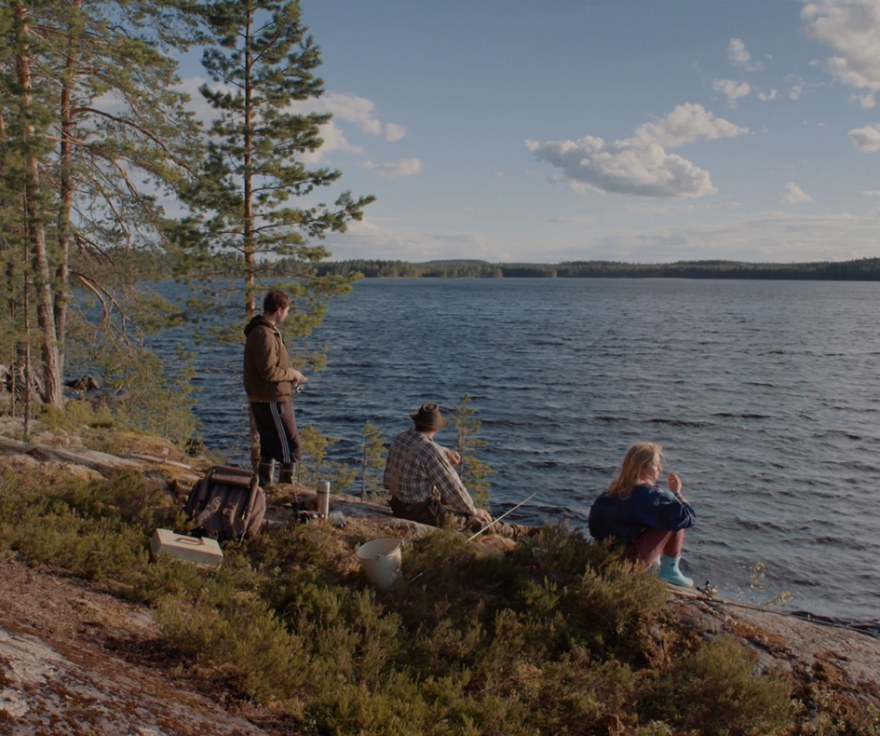Lunch with Kajaani
An interview with Mikael Marignac, director of Kajaani
Why did you decide to use the name of the region in the film as its title?
Kajaani is a small town located in the middle of Finland. It’s the town where my mother was born and raised. Part of my family is still there. So that’s the place where I made my first film. I found it beautifully symbolic to name my film Kajaani. Everything began in Kajaani, with the film Kajaani. Secondarily, I like the idea of a title that doesn’t need to be translated. It’s a universal title.
Are you drawing a parallel between nature and the experiences of Juho and Anna?
Finland is where the two characters, Anna and Juho, come from. Nature is a constant feature there. I wanted to film the lakes and pine forests because I get a strange feeling every time I see those landscapes. I have the impression of being on another planet, in another world and at the same time, I know deep down that it’s a part of me. I’m a foreigner but it belongs to me… That’s how Juho feels throughout the film, with his sense of attraction and revulsion towards his father, and towards the world.
What made you decide to focus on schizophrenia?
The actor who plays the character Juho is my brother David, who is a psychiatric nurse. I took my inspiration for the film from his stories. The poetry and tragedy of the illness fascinated me, but I don’t know why… It’s also a hereditary illness, and heredity, heritage, is the subject of the film.
Why do we see the father only through a “filter” such as a mobile phone or in flashbacks?
The film is the story of a failed meeting between Juho and his father, Arvo. At the same time, Juho thinks constantly about him. These “filters” (dreams, flashbacks, pictures on a mobile, imagined mental images…) make the father visible even though he is absent from the “diegetic” present, making him into a ghost.
Can you tell us a little more about how you chose the actors?
Each role has a different casting story. For the main character, I chose my little brother David Marignac. I wanted an alter-ego, someone who could understand what I feel when I return to Finland, the sense of melancholy. In addition, I’m fascinated by his gaze; I think he conveys many emotions with very little movement. And lastly, finding someone who can speak French and Finnish is no simple task, so having him on hand made things easier.
For the role of Anna, I was very lucky to find Mikaela. I posted a message on the Facebook page for the Finns in France and she replied. I met with her and she was perfect in every way except one: in the script, she was Juho’s older sister, but Mikaela is five years younger than David. After reconsidering the situation, I thought it would be more interesting if Anna were Juho’s younger sister but behaved like an older sister. She is more mature than him even though she’s younger.
For the role of Arvo, the father, I had the honor of working with Kari Väänänen, a famous actor in Finland. He has been in several of Aki Kaurismäki’s films, including La Vie de Bohême, Leningrad Cowboys and Drifting Clouds. I sent him the script; he read it and agreed. he was very generous and brought all of his experience to the film. It was a majestic moment.
All the other actors are non-professionals that I found in Kajaani. I put an ad in the local papers and all sorts of people showed up. I wanted the people of Kajaani to speak with their regional accent – that element of authenticity was necessary for me.
What sort of freedom would you say the short format allows?
I had complete freedom on this film. The only constraint was the budget, which was very tight. We had to do as best we could to finish the film. When you don’t have money, you must have ideas.
If you’ve already been to Clermont-Ferrand, could you share with us an anecdote or story from the festival? If not, what are your expectations for this year?
This is the first time I’m coming to the Clermont-Ferrand Festival. I expect to meet interesting people, talk with directors, actors and producers from all over the world. I also hope to see wonderful, courageous, audacious films.
Is your film being shown elsewhere?
The film was shown at the Pori festival in November 2017, at CineToro in Colombia, as part of the Maison du Film’s carte blanche selection at Aix-en-Provence, as well as part of the Courts Métrages Européens at Premier Plans – Angers Festival in January of this year.
Kajaani is being shown in National Competition F10.








